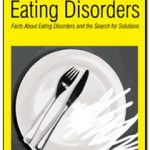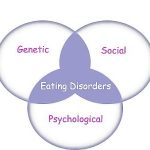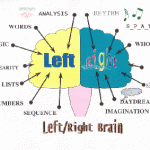Eating Disorders

The 15 percent of women with some form of an eating disorder does not include the 24 percent of women (combined statistical) who have anorexia nervosa. These women have one of the other eating disorders such as bulimia, binge eating, over exercising or one of the other eating disorders. The Study The study involved 1500 …
Read More

A recent study determined that half a million teenagers have an eating disorders and those numbers only reflect the amount of eating disorders reported. Why so Many eating Disorders go Unreported The majority of unreported eating disorders are teenagers between the ages of thirteen and eighteen just like the teens that have reported it. The …
Read More

In a recent study performed at Harvard medical school uncovered that some girls end up with their eating disorder as a result of watching television. It was also reported that several girls with eating disorders who did not have access to a television picked up the habit from their friends who did. The Study Researchers …
Read More

The study lead by the University of Florida showed that the psychological Benefits from exercising may be an ideal treatment for people suffering from an eating disorder with the exception to those who suffer from over exercising. The Study Five hundred and thirty nine average weight students participated in the study. The first step in …
Read More

Experts in the field of Eating Disorders are beginning to recognize a new and distinct syndrome of disordered eating behavior termed Night Eating Syndrome (NES). NES is thought to affect up to 1.5% of the general population, and up to 16% of overweight individuals. In patients who have undergone bariatric surgery, the incidence may be …
Read More

With the national Eating Disorder Awareness Week (February 6-12), coming up there will be several campaigns about raising awareness for eating disorders. It is important to know that an eating disorder can start before a person even realizes it. Statistics “Statistics show that at any time, 45% of women and 25% of men are dieting. …
Read More

Is it any wonder eating disorders are on the rise 97% of women having at least one negative thought about their body is bad enough but… the average woman (teen, tween) has thirteen negative body image thoughts a day. Those women are the luckier ones some women admit to have over 30 and others over …
Read More

The use of (transcranial magnetic stimulation) TMS to modulate food intake is still a developing therapy, and it is important to keep in mind limitations in study designs when evaluating results. The negative results of this particular study might be due to several reasons: (1) The small sample size of 14 women resulted in a …
Read More

The age for eating disorders is becoming younger and with that is showing an increase in male eating disorders: “The stereotype of a child or teen with an eating disorder has historically been an affluent white girl in her teens or early twenties. The reality is eating disorders are an equal opportunity condition. Not only …
Read More

According to a report posted online March 7 that will appear in the July print issue of Archives of General Psychiatry eating disorders are widespread in the general U.S. adolescent population and are associated with other mental health disorders, role impairment, and suicide. The Study Sonja A. Swanson, Sc.M., of the National Institute of Mental …
Read More
 Eating Disorder Self Test. Take the EAT-26 self test to see if you might have eating disorder symptoms that might require professional evaluation. All answers are confidential.
Eating Disorder Self Test. Take the EAT-26 self test to see if you might have eating disorder symptoms that might require professional evaluation. All answers are confidential.
Find a Treatment Facility Near You
Click on a state below to find eating disorder treatment options that could be right for you.









 Eating Disorder Self Test. Take the EAT-26 self test to see if you might have eating disorder symptoms that might require professional evaluation. All answers are confidential.
Eating Disorder Self Test. Take the EAT-26 self test to see if you might have eating disorder symptoms that might require professional evaluation. All answers are confidential.